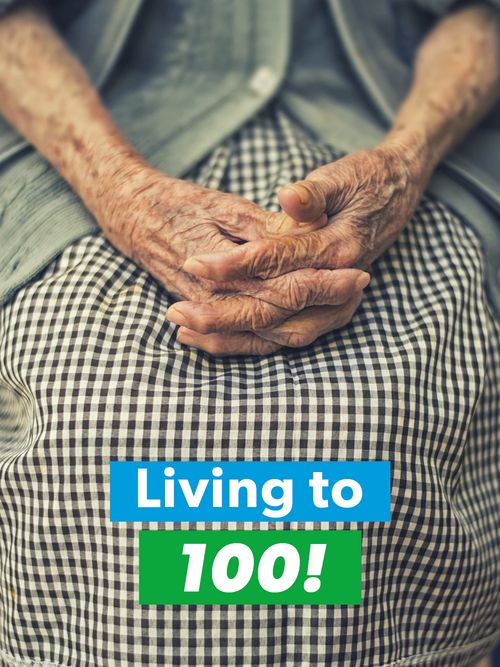How can I live to be 100 years old?
Nov 04, 2020 · 2 mins read
0
Share

Around 1 in 5,000 Americans live to the age of 100, so the odds may seem relatively low. The good news is that genes only impact the average lifespan by about 10%. The other 90% is all down to lifestyle.
Save
Share
The aging process cannot be slowed, stopped or reversed by any treatment. There are simply too many factors working against us. The body is composed of 35 trillion cells that regenerate every eight years. When they do, they deteriorate. It’s why a retiree ages 125 times faster than a 12-year-old.
Save
Share
Our bodies are generally built to last 90 years. Life expectancy in the US, however, is just 78. That means that the average person is losing out on 12 extra years of life – 12 years that, according to research, would largely be unaffected by cancer, chronic disease, and diabetes.
Save
Share
An international study led by National Geographic and the National Institute on Aging focused on ‘blue zones’: cultures where people have a far greater chance of living to 100. One was in the Nuoro province of Sardinia, Italy, which has 10 times the number of centenarians than America.
Save
Share
The Nuoro province is the kind of place where 102-year-olds continue to live vigorously – even riding their bike to work – and the older you get, the more respected you are. The next ‘blue zone’ was on the Japanese archipelago of Okinawa, where retirement is a foreign concept.
Save
Share
Okinawan people follow a plant-based diet, rich with colorful vegetables, and eat roughly eight times as much tofu as Americans. They also take care to avoid overeating (stopping when they feel 80% full) and maintain a system of lifelong companionship built around six close friends.
Save
Share
America’s longest-living population lies in a community of Seventh-Day Adventists who live around the Californian city of Loma Linda, near Los Angeles. What sets them apart is a diet that promotes a variety of whole plant foods, a strong sense of community, and a commitment to enjoying nature.
Save
Share
These three ‘blue zones’ share common traits. Their residents constantly engage in some form of physical activity, but nothing that would qualify as conventional exercise. Downtime is important to them and a sense of purpose is hardwired into their everyday values.
Save
Share
Apart from Seventh-Day Adventists, ‘blue zone’ centenarians drink a little bit every day with friends. They all follow a plant-based diet, avoid overeating, and prioritize family. They also share some kind of faith and, most importantly, belong to a tribe.
Save
Share
There’s no such thing as a quick fix for longevity. No diet has worked for more than 2% of people in history. But surrounding yourself with healthy or unhealthy people does have an enormous impact. The best way to extend your life, it seems, is by investing in quality relationships.
Save
Share
0